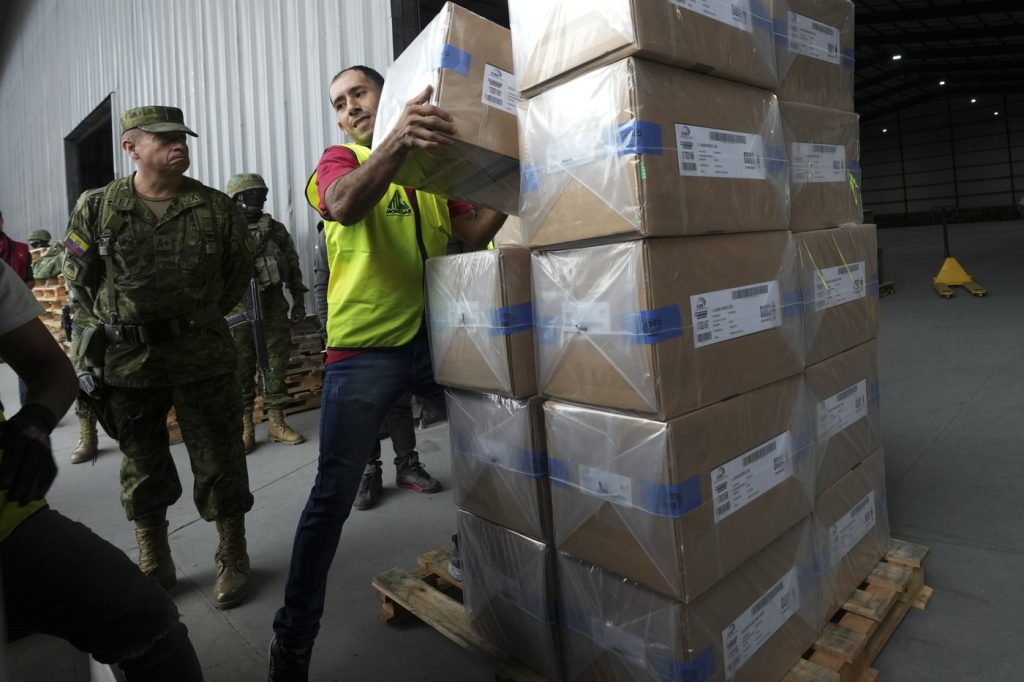GUAYAQUIL, Ecuador (AP) — Ecuador is gearing up for its presidential election on Sunday, a race reminiscent of the 2023 contest where voters opted for a conservative young millionaire over the leftist candidate closely associated with the country's most influential president of the 21st century. Currently, President Daniel Noboa and Luis González are the clear front-runners among the 16 candidates vying for the presidency.
Both candidates promise to address the alarming rise in crime that has drastically altered daily life for Ecuadorians over the past four years. The upsurge in violence is largely linked to the cocaine trafficking operations originating from neighboring Colombia and Peru, and the widespread criminal activity has left many citizens as direct victims, significantly influencing their voting preferences. As a result, the electorate is faced with a critical decision regarding whether to support a third president in just four years to steer Ecuador towards stability or to grant Noboa additional time in office to fulfill his promises.
In Ecuador, voting is mandatory, with over 13.7 million eligible voters. Notably, in a unique provision, thousands of inmates awaiting sentencing were allowed to vote at designated centers across more than 40 prisons on Thursday.
To secure an outright victory, a candidate must achieve 50% of the vote or obtain at least 40% with a 10-point lead over the nearest competitor. If no candidate meets this requirement, a runoff election will be held on April 13.
Noboa, who emerged victorious over González in the October 2023 runoff election — a snap election precipitated by former President Guillermo Lasso's decision to dissolve the National Assembly — has a relatively brief political history. He served in the National Assembly starting in 2021 and chaired the Economic Development Commission. The 37-year-old billionaire heir made his initial foray into the business world by founding an event organizing company at the age of 18 before joining the family business, Noboa Corp., where he engaged in shipping and logistics.
Under Noboa's leadership, Ecuador's homicide rate showed a decline, dropping from 8,237 murders (46.18 per 100,000 people) in 2023 to 6,964 murders (38.76 per 100,000 people) last year. However, this figure remains significantly higher than the rate of 1,188 homicides (6.85 per 100,000 people) recorded in 2019, indicating persistent issues with crime.
On the other hand, González, 47, has a history of political service, having held multiple government roles during Rafael Correa's presidency from 2007 to 2017. Correa's administration was characterized by its socially conservative policies and increasing authoritarianism in later years. González faced legal challenges, including a conviction in absentia in 2020 related to a corruption scandal. Before the National Assembly was dissolved in May 2023, she had served as a lawmaker but was relatively unknown to the majority of voters until being chosen as the presidential candidate by Correa's political party for the snap election.
This election will undoubtedly serve as a referendum on how effectively Noboa has managed the issues facing Ecuadorians, particularly as the country navigates its deepening struggles with crime and governance.










